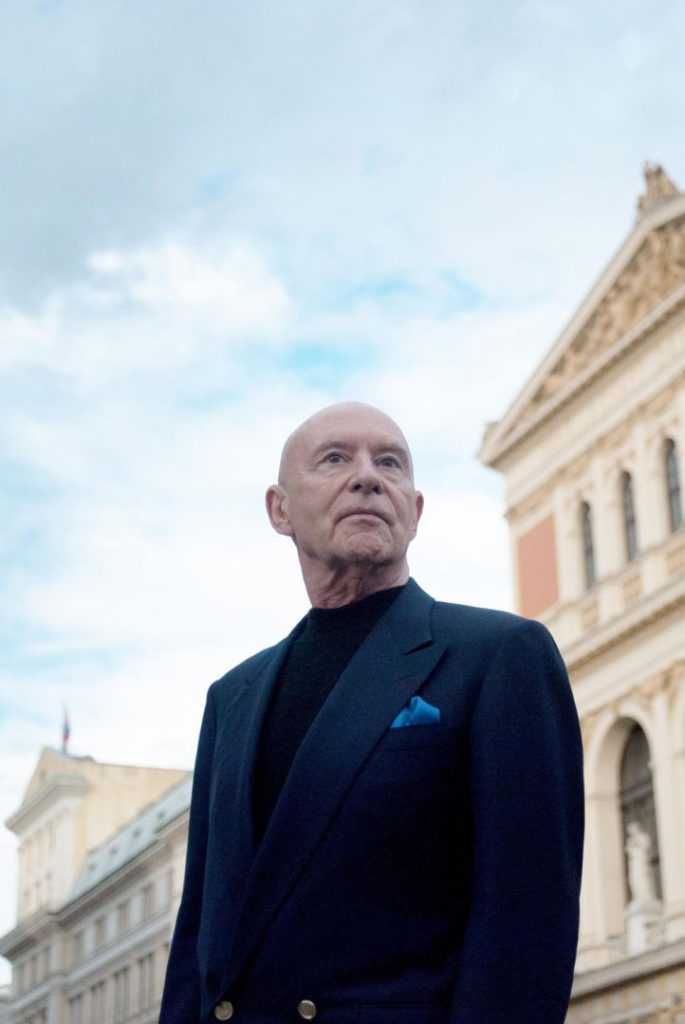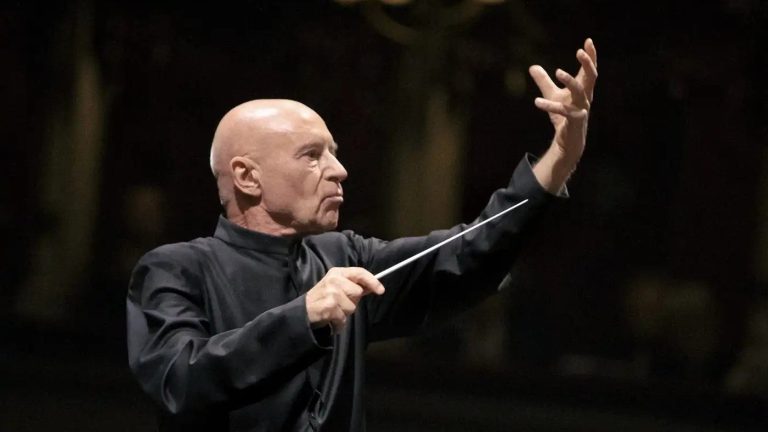With the intriguing title “Eternal Youth”, Budapest’s Máv Symphony Orchestra engaged one of the world’s most legendary maestros, the 84-year-old Christoph Eschenbach. He conducted two compelling concerts on October 26 and 27 (at the Liszt Academy and the Pesti Vigadó, respectively) featuring Mahler’s First Symphony “Titan,” preceded by Mendelssohn’s Concerto for violin, piano, and orchestra.
Compelling, because, in addition to the reference of immortality, the second concert capitalized on Austro-Hungarian history: the program was presented in the very venue that Mahler himself had debuted the work – at the (previously-named) Vigadó Concert Hall, on October 1, 1889. It was not well-received then, according to the critics of that era, but Maestro Eschenbach’s rendition of it here received ecstatic praise from the audience.
Capitalizing on the theme of youth, the program began with a sparkling performance of the Mendelssohn – a work written when the composer was 14. The manuscript was lost until it was rediscovered in 1951 and subsequently re-introduced by Yehudi Menuhin. It’s a virtuosic score for both soloists, and this performance by 18-year-old violinist Amira Abouzahra and pianist Zoltán Fejérvári was brimming with energy and superb skill. Generally speaking, I wouldn’t call this a monumental work, but it’s a piece that is a whirlwind of technical acumen that these two young artists have in abundance.
”Titan” is one of those symphonies that gives us eternal delight through its youthful romp in nature’s playground, folk dancing, and a dip of the toe into a funereal procession that eventually erupts into another explosion of joy. Chiefly using brass power: 7 horns, 5 trumpets, and 4 trombones, Mahler encircles us with the wattage of partying teenagers. Perhaps in his era, modest concert-goers weren’t prepared for such flamboyance. But in the accomplished hands of this Maestro (and his young conducting assistant, Mirian Khukhunaishvili, who prepared the orchestra in advance), the Vigado was filled with elated applause.
I had the pleasure of interviewing Eschenbach just prior to the concert. He made his Budapest debut in 2012 conducting Eugene Onegin at the Hungarian State Opera, and subsequently toured with the Hungarian Radio Symphony Orchestra to Berlin and Kiev in 2017. “I was overwhelmed by Budapest’s bounty of incredible musicians,” he recalled. “They play like angels and devils!”

His personal history is replete with shock and tragedy, as he grew up in Germany during the war years when he lost most of his family members. He found solace in learning to play the piano, but found a new sense of himself when he witnessed Wilhelm Furtwängler conduct. “My mother, when I told her I wanted to be a conductor, told me I needed to play an orchestral instrument first. So, I started taking violin lessons,” he explained. “Now, I know all the secrets of string players.”
At this point in Eschenbach’s long and storied career studded with awards, recordings, and countless global orchestra leadership positions, his current passion is discovering and mentoring young musicians. This concert was the perfect example: Abouzahra, and her 15-year-old violinist sister who recently won the Viotti Competition, are two of his current protégées, but the list of young talents goes back decades to musicians like Lang Lang, Julia Fischer, and Daniel Müller-Schrott. After this interview, he was scheduled to listen to a few young local discoveries to play for him before concert time.
I asked him what question no one had ever asked him, but wished they had. After thinking deeply, he said: “I always wanted to be an actor – to say the words of the great German playwrights Schiller and Goethe onstage. So, from the theatre to the podium, that’s where I try to show their genius. And, since music has always helped me surmount any past troubles, every concert is a high point for me.”











